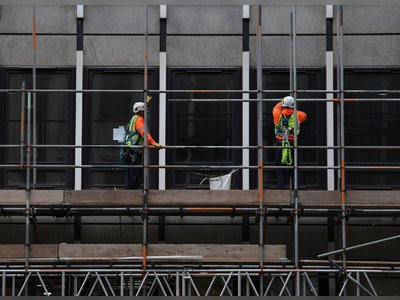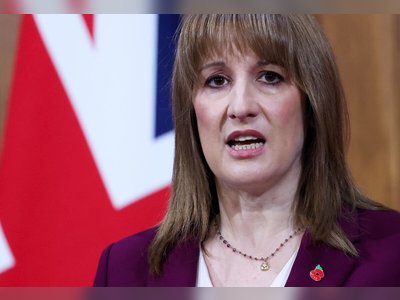UK Gambling Firms Report £1bn Surge in Annual Profits as Pressure Mounts for Higher Betting Taxes
New data shows a sharp rise in online casino revenues, intensifying calls for tax increases ahead of the chancellor’s budget
The UK gambling industry generated an extra £1 billion from punters in the year to March, according to new figures from the Gambling Commission that are expected to amplify demands for higher betting taxes in Wednesday’s budget.
Total earnings from gambling services excluding lotteries rose to £12.6 billion, marking a 9.3% increase from the previous year’s £11.5 billion.
The most striking growth came from online casino play, where gross gambling yield climbed nearly 15% to £5 billion.
That figure is now more than 55% higher than it was at the start of the Covid-19 pandemic, reinforcing concerns about the addictive nature of online casino products and prompting renewed calls for higher online gaming duties.
Campaigners, including former prime minister Gordon Brown, argue that the sharp rise in profits underscores the need for the government to impose tougher fiscal measures on digital gambling platforms.
Senior parliamentarians echoed those concerns.
Iain Duncan Smith, chair of a cross-party group examining gambling harm, described the profits as “vast and growing”, warning that highly addictive formats disproportionately affect the UK’s most deprived communities.
Treasury committee chair Meg Hillier said more punitive taxation should fall on online betting rather than sectors with cultural or social value, such as horse racing and bingo halls.
The figures arrive amid intense lobbying from the gambling industry, which is urging the Treasury not to introduce sweeping tax rises.
Firms have warned that significant increases in machine games duty or online betting taxes could force widespread shop closures.
Betfred has said that a tax rise could lead it to shut more than 1,200 high-street shops, while the owner of William Hill has indicated up to 200 closures are under review if duties rise further.
Adult gaming centres also posted higher income, reporting a 10% increase in winnings taken from customers, even as the number of centres fell slightly over the past year.
Industry representatives insist the sector is already facing substantial headwinds, pointing to new regulatory requirements—including a £100 million levy to fund research and treatment for gambling harm and mandatory financial-vulnerability checks—that they say are constraining growth.
Despite those pressures, the industry continues to generate significant economic output, contributing more than £4 billion in tax and supporting over 100,000 jobs.
Gambling bodies warn that excessively punitive measures could push consumers toward the unregulated black market, undermining both public protections and tax receipts.
With the budget imminent, the government faces mounting pressure to balance public-health concerns with the sector’s economic footprint.
Total earnings from gambling services excluding lotteries rose to £12.6 billion, marking a 9.3% increase from the previous year’s £11.5 billion.
The most striking growth came from online casino play, where gross gambling yield climbed nearly 15% to £5 billion.
That figure is now more than 55% higher than it was at the start of the Covid-19 pandemic, reinforcing concerns about the addictive nature of online casino products and prompting renewed calls for higher online gaming duties.
Campaigners, including former prime minister Gordon Brown, argue that the sharp rise in profits underscores the need for the government to impose tougher fiscal measures on digital gambling platforms.
Senior parliamentarians echoed those concerns.
Iain Duncan Smith, chair of a cross-party group examining gambling harm, described the profits as “vast and growing”, warning that highly addictive formats disproportionately affect the UK’s most deprived communities.
Treasury committee chair Meg Hillier said more punitive taxation should fall on online betting rather than sectors with cultural or social value, such as horse racing and bingo halls.
The figures arrive amid intense lobbying from the gambling industry, which is urging the Treasury not to introduce sweeping tax rises.
Firms have warned that significant increases in machine games duty or online betting taxes could force widespread shop closures.
Betfred has said that a tax rise could lead it to shut more than 1,200 high-street shops, while the owner of William Hill has indicated up to 200 closures are under review if duties rise further.
Adult gaming centres also posted higher income, reporting a 10% increase in winnings taken from customers, even as the number of centres fell slightly over the past year.
Industry representatives insist the sector is already facing substantial headwinds, pointing to new regulatory requirements—including a £100 million levy to fund research and treatment for gambling harm and mandatory financial-vulnerability checks—that they say are constraining growth.
Despite those pressures, the industry continues to generate significant economic output, contributing more than £4 billion in tax and supporting over 100,000 jobs.
Gambling bodies warn that excessively punitive measures could push consumers toward the unregulated black market, undermining both public protections and tax receipts.
With the budget imminent, the government faces mounting pressure to balance public-health concerns with the sector’s economic footprint.










